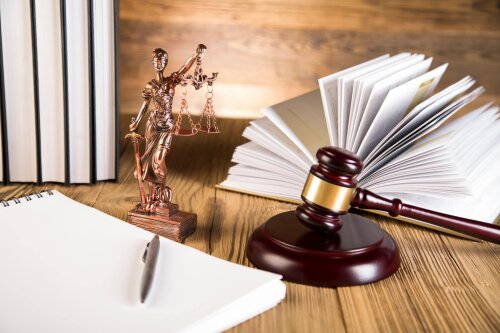Best Discrimination Lawyers in South Africa
Share your needs with us, get contacted by law firms.
Free. Takes 2 min.
Or refine your search by selecting a city:
List of the best lawyers in South Africa
About Discrimination Law in South Africa
Discrimination in South Africa is governed under both constitutional and statutory frameworks aimed at promoting equality and preventing unfair discrimination. The country's history of apartheid has made addressing discrimination a vital part of its legal and social landscape. The Constitution of South Africa and the Promotion of Equality and Prevention of Unfair Discrimination Act (PEPUDA) are central to ensuring that all individuals have equal rights and are treated fairly, regardless of race, gender, religion, or any other fundamental characteristic.
Why You May Need a Lawyer
There are several situations where legal assistance might be necessary for discrimination cases:
- Experiencing discrimination at work, which can manifest as unfair employment practices or harassment.
- Facing discrimination in accessing goods, services, or facilities, such as being denied service based on race or gender.
- Being subjected to discriminatory policies or practices in educational institutions.
- Seeking redress for systemic discrimination practices within governmental or private entities.
- Understanding your rights and how to protect them if you believe you are being discriminated against.
Local Laws Overview
South Africa has robust laws aimed at combating discrimination, including:
- The Constitution of South Africa: Specifically, Section 9 of the Bill of Rights, which guarantees the right to equality and protects against unfair discrimination.
- Promotion of Equality and Prevention of Unfair Discrimination Act (PEPUDA): This Act is designed to prevent and prohibit unfair discrimination, harassment, and hate speech.
- Employment Equity Act: It addresses workplace discrimination and aims to promote equal opportunity and fair treatment in employment.
- Other sector-specific regulations and codes: These govern specific industries and practices, like the education sector or healthcare services, providing guidelines to prevent discrimination.
Frequently Asked Questions
What is considered discrimination under South African law?
Discrimination refers to treating someone unfairly or differently based on characteristics like race, gender, sex, pregnancy, marital status, ethnic or social origin, sexual orientation, age, disability, religion, conscience, belief, culture, language, and birth.
What are my rights if I experience discrimination?
Under the South African Constitution, you have the right to equality and protection from unfair discrimination. You can seek legal recourse through institutions like the courts or the South African Human Rights Commission.
How can I prove discrimination has occurred?
Proving discrimination often involves providing evidence of differential treatment and establishing a link to a characteristic protected by law. Documentation, witness statements, and a record of events can be crucial.
Can I file a complaint anonymously?
While anonymous complaints can raise awareness, formal legal proceedings typically require the complainant's identity. Certain complaint processes may allow anonymity initially, but progressing legally generally requires identification.
What role does the Equality Court play?
The Equality Court is a special court set up to handle issues relating to unfair discrimination, harassment, and hate speech. It aims to offer an accessible and efficient legal process for discrimination cases.
Is mediation an option in discrimination cases?
Yes, mediation is often encouraged as a first step to resolve discrimination issues amicably and can be a beneficial approach for both parties before pursuing litigation.
What should I do if I feel discriminated against at work?
It is advisable to use your company's internal grievance procedures first. If unresolved, you can approach the Commission for Conciliation, Mediation, and Arbitration (CCMA) or seek legal advice.
Can I claim damages for discrimination?
Yes, courts may grant damages in successful discrimination cases as compensation for the impact of the discriminatory act, including emotional and psychological distress.
What is hate speech under South African law?
Hate speech involves communication that is hateful, incites violence, or prejudices others based on race, ethnicity, religion, or other protected characteristics, and is prohibited under the Equality Act.
Are there any defenses available in discrimination claims?
Defenses may include proving that the differential treatment was justifiable, based on inherent job requirements, or falls within the exceptions provided by law, such as affirmative action measures.
Additional Resources
Here are some resources that can assist in addressing discrimination issues:
- South African Human Rights Commission (SAHRC): Provides advice and can investigate complaints.
- Equality Courts: Dedicated to handling discrimination cases.
- Commission for Gender Equality (CGE): Focuses on promoting gender equality and addressing gender-related discrimination.
- Legal Aid South Africa: Offers legal assistance to those who cannot afford private lawyers.
Next Steps
If you need legal assistance regarding discrimination, here are some steps to consider:
- Document Everything: Keep detailed records of discriminatory incidents, including dates, times, places, involved parties, and any communications.
- Seek Early Legal Advice: Consult with a lawyer specializing in discrimination to understand your rights and options.
- Consider Filing a Complaint: Depending on the case, this could be internal (e.g., workplace) or external (e.g., Equality Court).
- Explore Mediation and Conciliation: Look into reputable mediation services to potentially resolve the issue informally.
- Prepare for Legal Proceedings: If necessary, prepare to take your case to court or an appropriate tribunal to seek redress.
Regardless of the approach, understanding your rights and seeking qualified legal guidance is crucial for effectively addressing discrimination issues.
Lawzana helps you find the best lawyers and law firms in South Africa through a curated and pre-screened list of qualified legal professionals. Our platform offers rankings and detailed profiles of attorneys and law firms, allowing you to compare based on practice areas, including Discrimination, experience, and client feedback.
Each profile includes a description of the firm's areas of practice, client reviews, team members and partners, year of establishment, spoken languages, office locations, contact information, social media presence, and any published articles or resources. Most firms on our platform speak English and are experienced in both local and international legal matters.
Get a quote from top-rated law firms in South Africa — quickly, securely, and without unnecessary hassle.
Disclaimer:
The information provided on this page is for general informational purposes only and does not constitute legal advice. While we strive to ensure the accuracy and relevance of the content, legal information may change over time, and interpretations of the law can vary. You should always consult with a qualified legal professional for advice specific to your situation.
We disclaim all liability for actions taken or not taken based on the content of this page. If you believe any information is incorrect or outdated, please contact us, and we will review and update it where appropriate.
Browse discrimination law firms by city in South Africa
Refine your search by selecting a city.
















